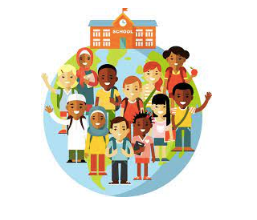Melting Pot
- Leigh Gerstenberger

- Sep 16, 2025
- 2 min read

The other day I had the opportunity to attend an “open house” at a local elementary school. The building was teaming with students and their families as the children proudly introduced their teachers to their parents and siblings.
During my visit I was struck by a number of things. First, how engaged the teachers were with the students calling each of them by name and making a special comment about each student such as, “they love to read…their artwork is wonderful…they are so helpful in class.”
I was also struck by how engaged the principal and staff were with the students…sharing “high fives” with one another and good-natured joking. In short, I was pleasantly surprised at how much fun the students, teachers and staff were having with one another.
I think the reason this got my attention was that what I remember about my elementary and high school experience was so different.
While I was fortunate to attend one of the top school districts in the country, and I did have fun in school, I don’t recall any of the teachers making it fun and certainly not the administrators. When I was growing up, if I found myself in the presence of a school administrator it was because I had been, “sent to the principal’s office”, because I had done something wrong.
While I’m sure current day teachers and staff are strict, demanding and effective at disciplining students when needed, it occurs to me that the culture created in the school I visited might also lead to the disciplinary process being different.
The final impression that refreshingly caught me off guard was the amount of diversity represented by the student body. My visit was punctuated by students representing a wide range of nationalities, races and cultures. I even heard a variety of languages being spoken among family groups that were visiting the school that evening.
I grew up in a predominantly white suburb of Pittsburgh and my graduating class of 700 students had less than a dozen, non-white students. As a result, I was raised in a “white bubble”.
As I reflected on the different experience that the children in the school I visited were having, it occurred to me how fortunate they are to be experiencing the wide range of cultures and races from such an early age. Something tells me that as the beneficiaries of this opportunity it might be what truly, “Makes America Great Again.”



Comments